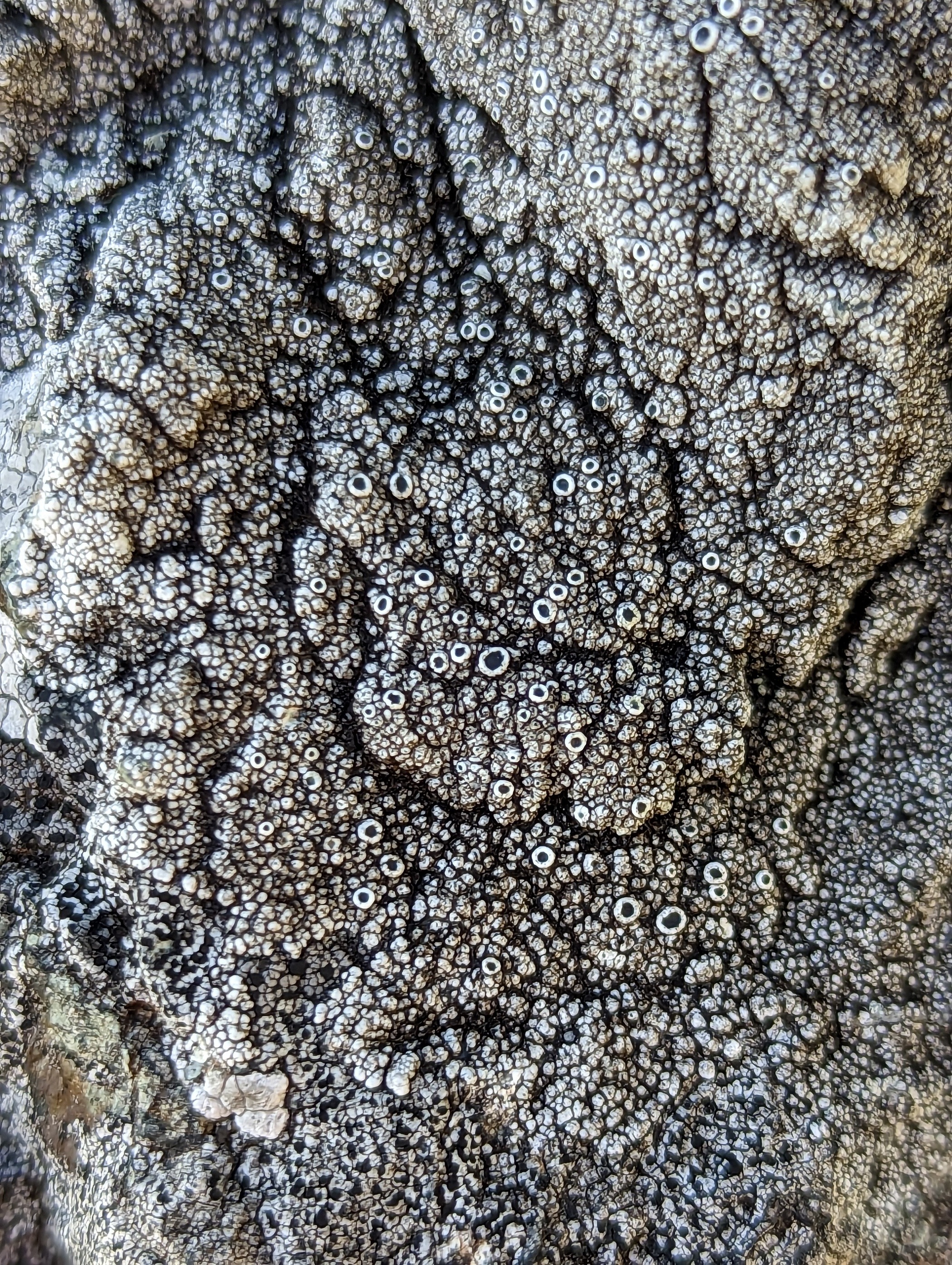
The Aesthetic Potentials of Moss and Lichen
Recently I (Ryder) went on a lovely lichen walk with botanist and Lichen Society president Shelly Benson in the beautiful Jenner Headlands (a place you can stop if you ever wish to visit us!) While I’ve always known mosses and lichens to be incredible living paints and brushes, a botanists eye aided me in seeing them at another level.
We have played with lichens in the past, particularly lace lichen, but there are so many more to explore, or at least to draw inspiration from. Maybe it’s the strangeness of their plant-fungus symbiosis that draws me, or the way they just like, live on rocks, but they seem so rife with potential, that we can’t wait to produce a piece that really reflects their presence in nature.
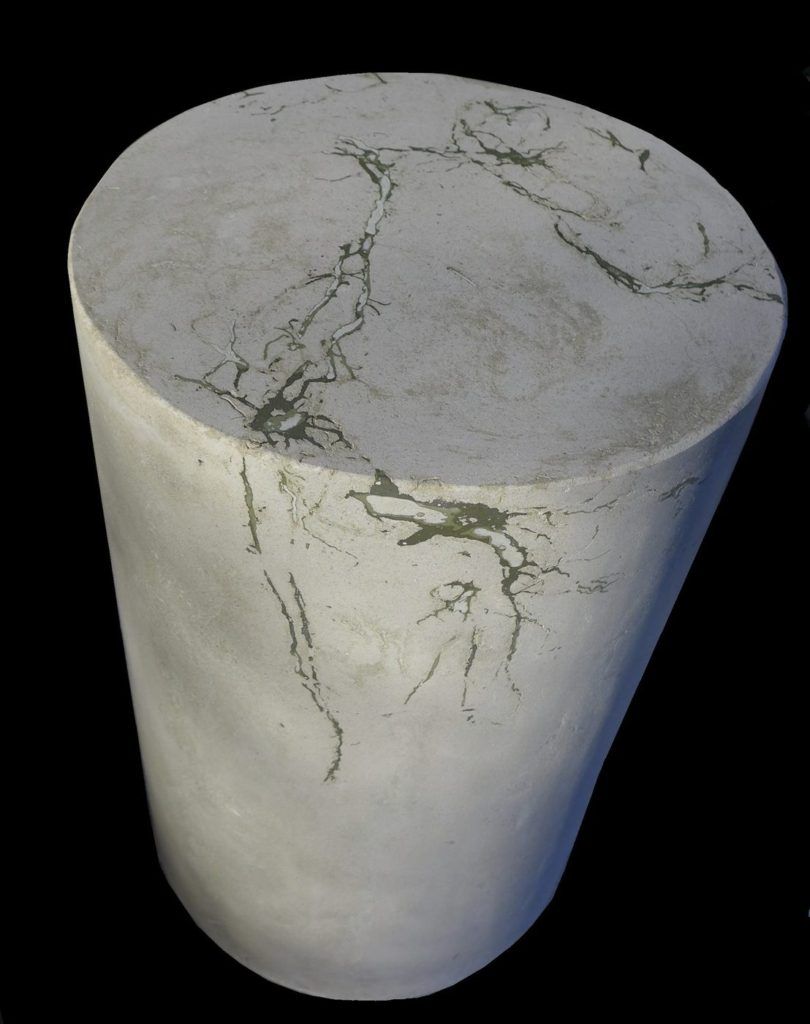
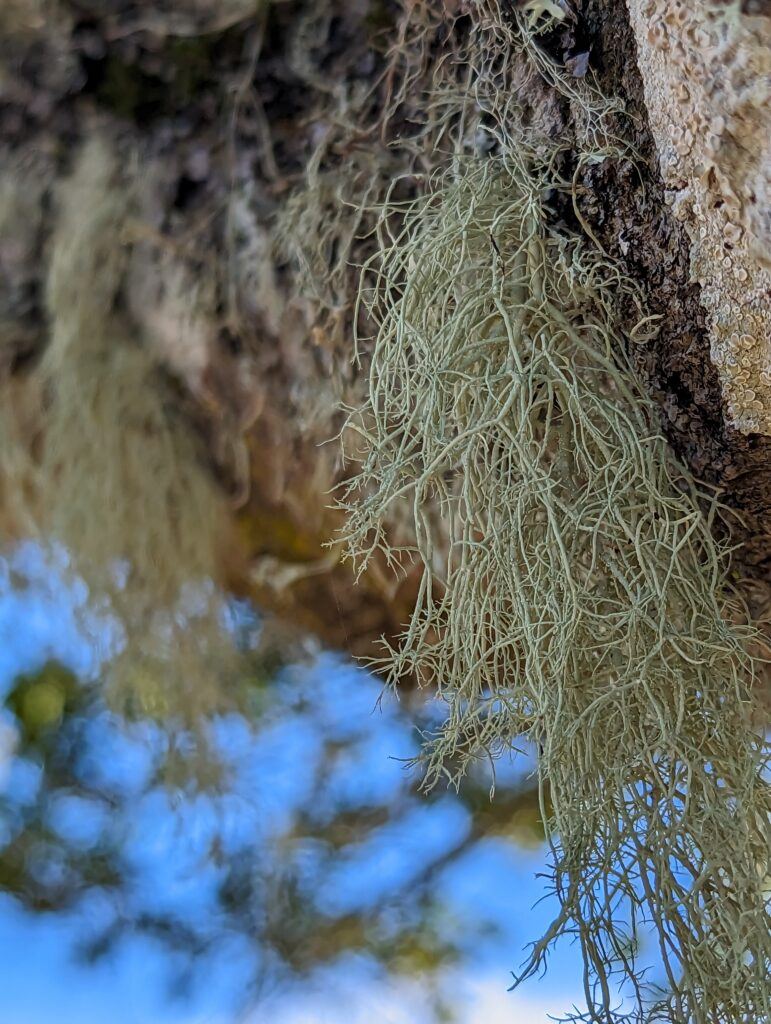
Moss is pretty great too, albeit, “just” a plant. Recently we have I think partially achieved a mossy and lichen-esque impression with Roadcut. Pictured below is the very roadcut (in Salt Point) that inspired this piece. There’s nothing quite like nature scabbing over the remains of some large machine.
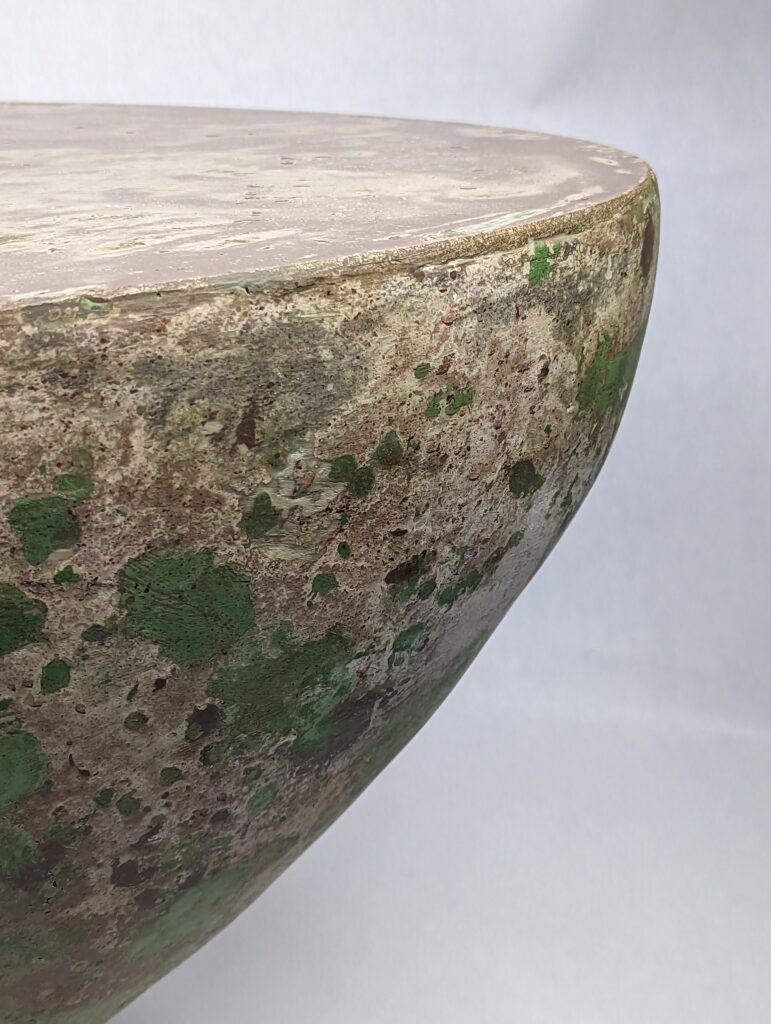
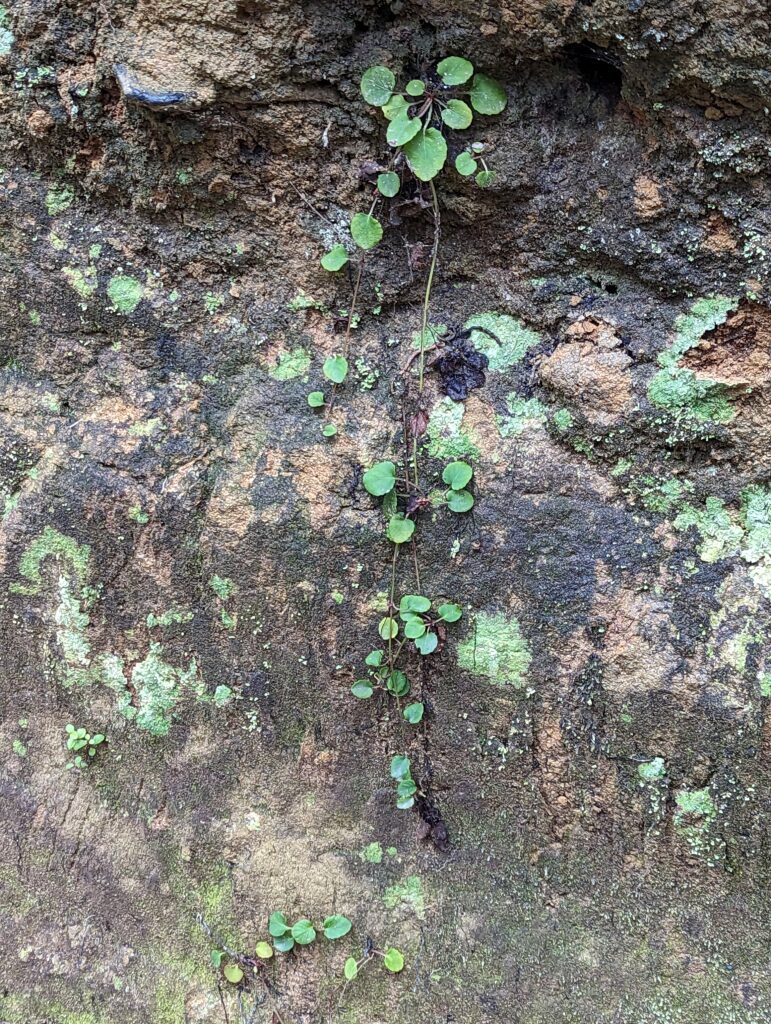
And yet the ground remains fertile for exploration, what with the myriad of textures and colors lichens and mosses create. We are dreaming of an organically shaped piece covered in a lichen-like facade. It turns out, the whole lichen botanist community has an extensive color language, one surely full of debate. If only we could grow them directly on the pieces, how preferable that would be. Alas, the slow growing nature and hyper micro-climate specialization of lichens makes that exceedingly difficult.
Note the cup-like sporulation structures below, and the granulation on the wood. The orange lichen likely denotes a perching spot for birds, where they leave their nitrogen-rich gifts. Wood is excellent surface for many lichens, and the good news it is relatively harmless to it, whether living or dead.
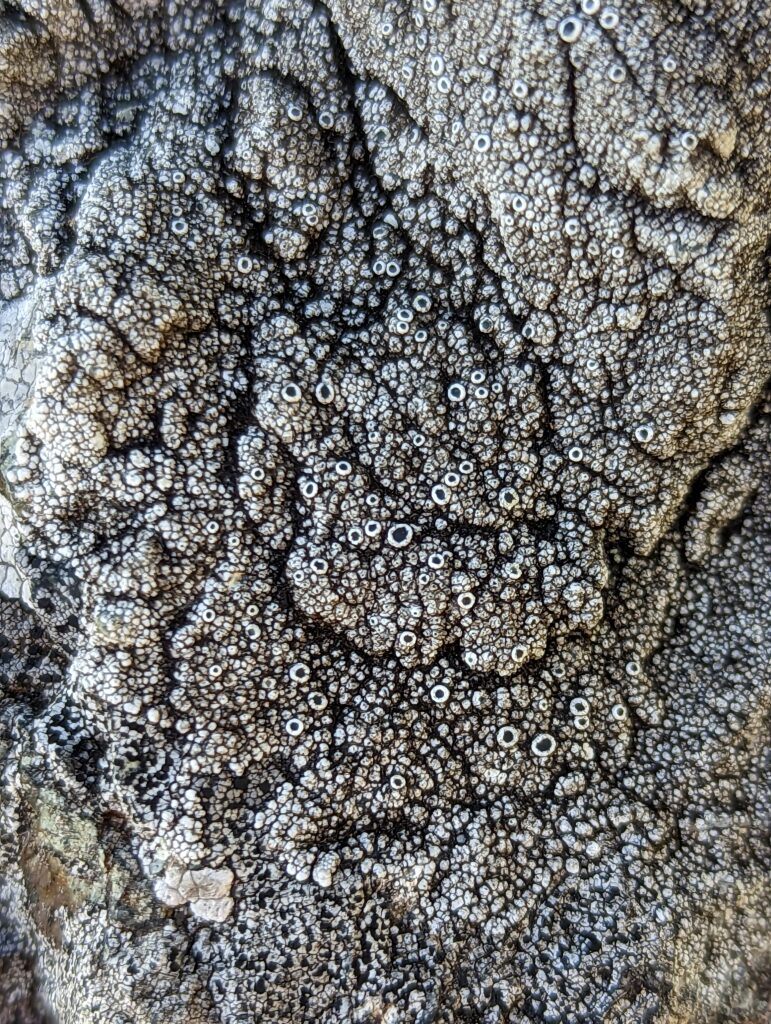
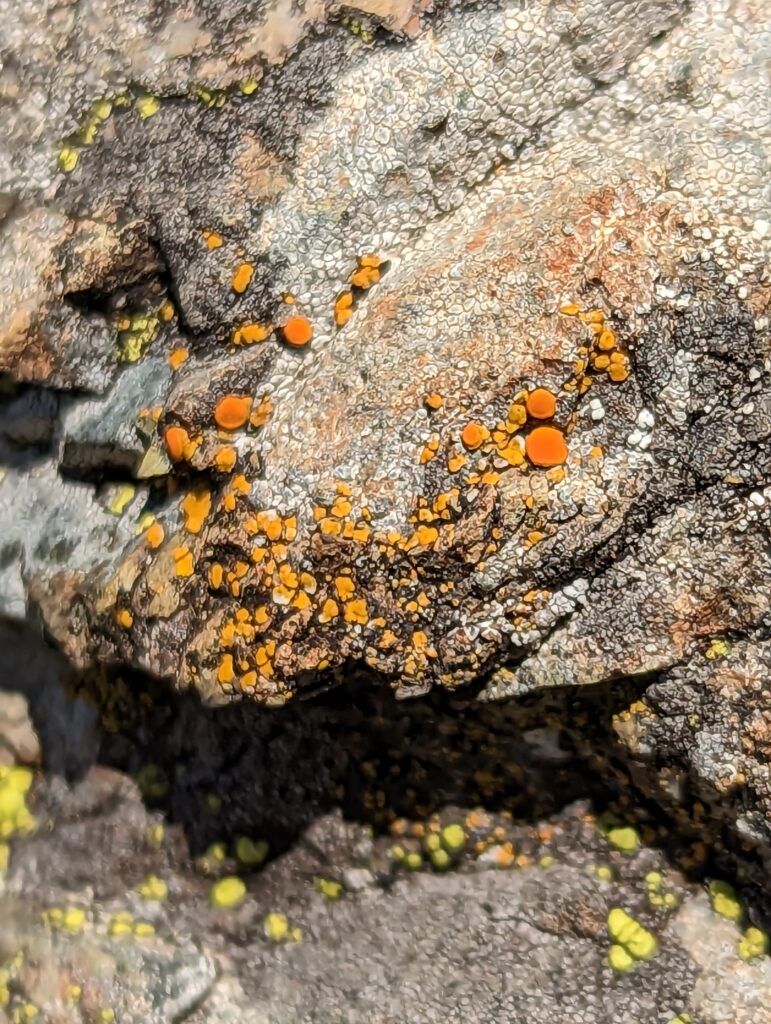
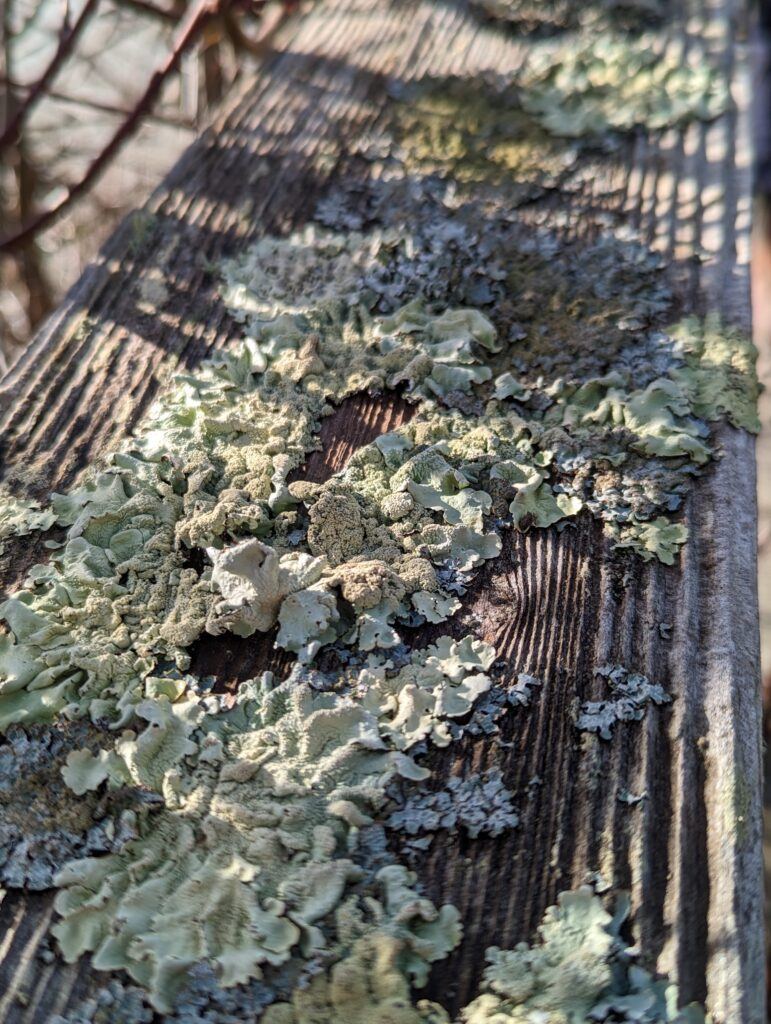
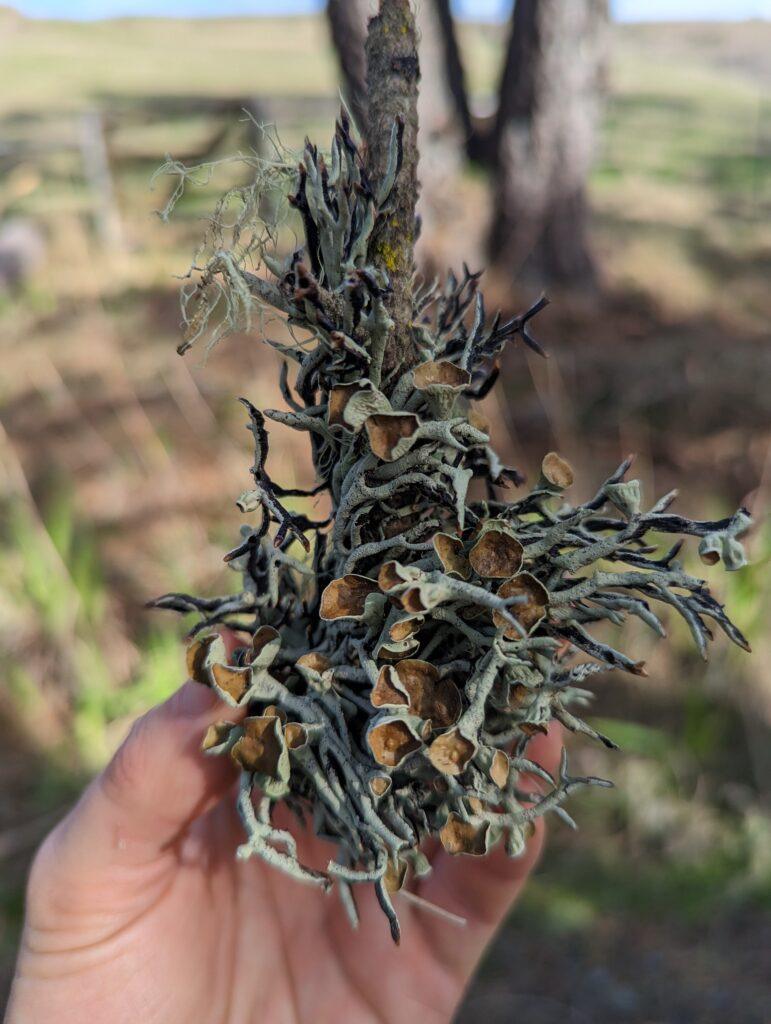
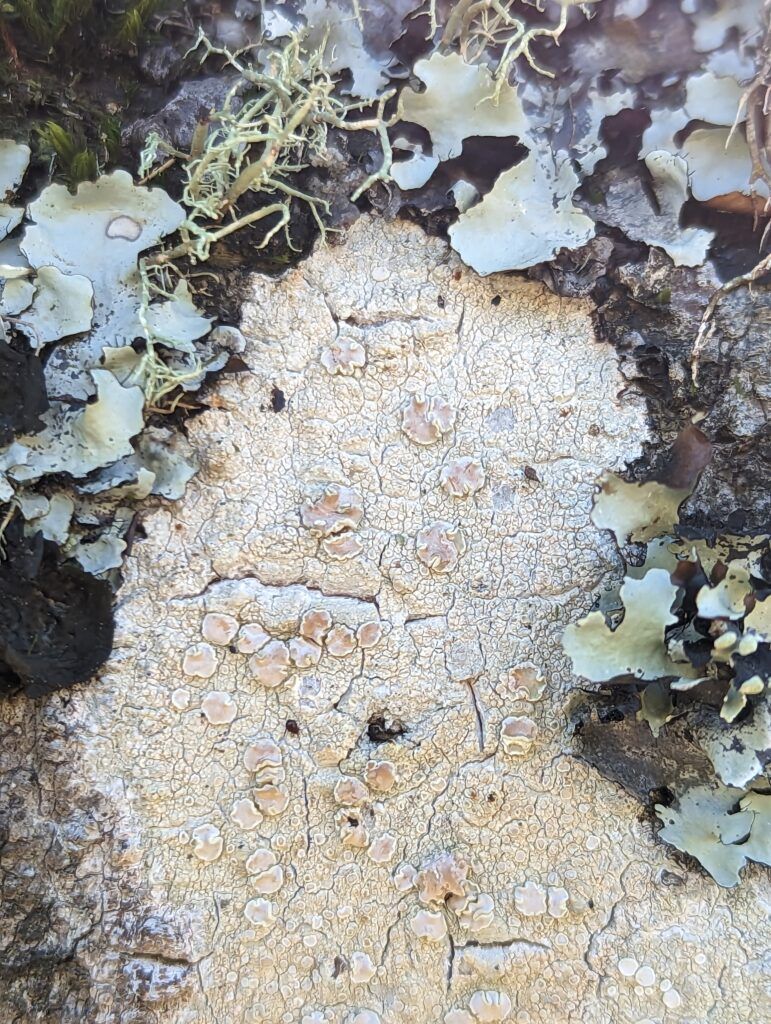
Finally, lichens have a great history as sources of dyes for textiles. While they are unlikely to take effect on concrete, we shall nonetheless experiment with this source (from storm-fallen lichen only).